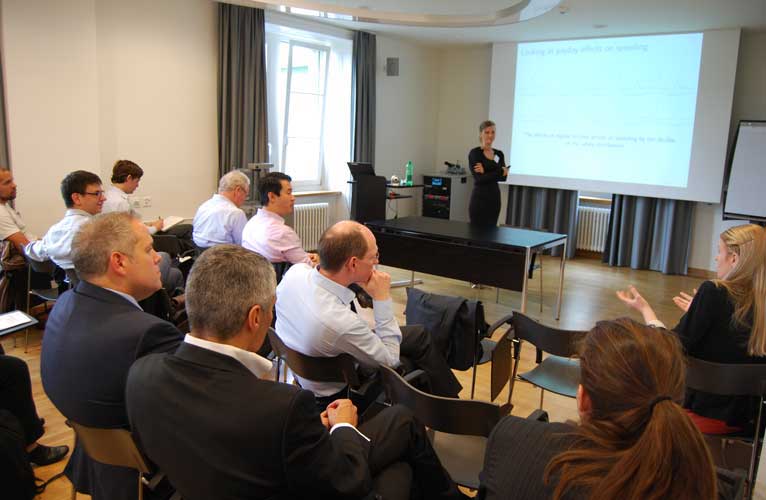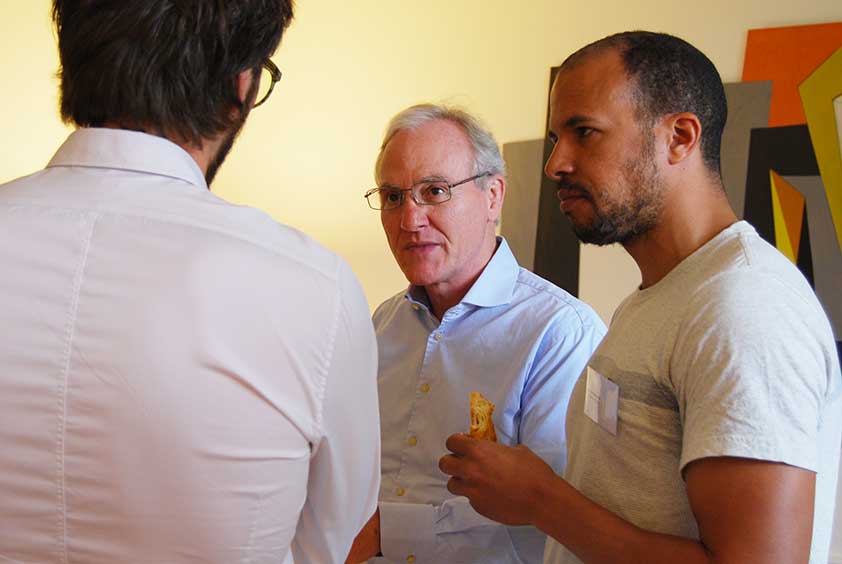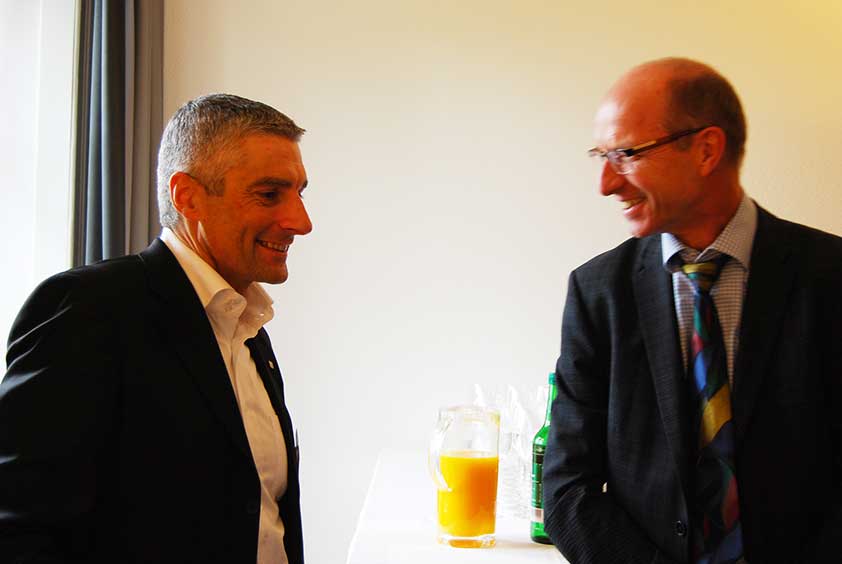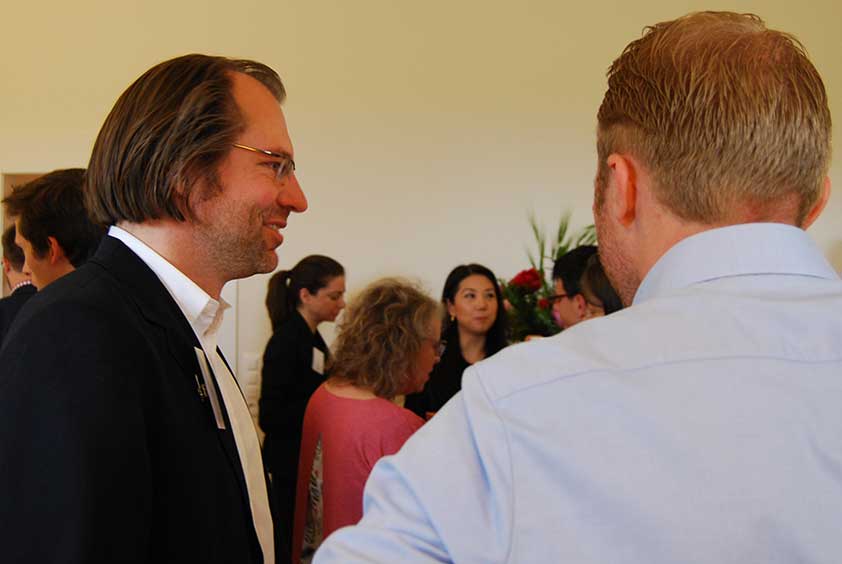Behavioral economics of financial markets
Intro
On June 2/3, the UBS Center organized in collaboration with the Swiss Finance Institute a two-day workshop on the “Behavioral Economics of Financial Markets” on its own premises in Zurich, which featured presentations from researchers around the world.
The program proved very diverse in terms of research methodologies and focus themes, which served as a reminder as to why behavioral finance has become such a thriving research area. Ranging from theory papers to empirical contributions and experimental studies, presentation topics included an array of highly relevant and debated issues such as the effects of nudging and financial education, cognitive biases and misconduct, as well as financial innovation.
Consumers behave irrationally, and macroeconomic policy-makers rather like it
As could be expected from a field that has gained a reputation for challenging orthodoxy, the workshop featured various contributions that questioned conventional wisdom. One fascinating example was Michaela Pagel’s presentation (of a joint paper with Arna Vardardottir) on the payday spending puzzle. Standard economic theory predicts that rational consumers plan their spending to maximize their overall utility, so that spending should be independent of expected income payments as long as consumers are not facing liquidity constraints. However, using an amazing dataset that contains total spending of one quarter of Iceland’s population, the two economists were able to show that in reality, Icelanders of all income classes spend considerably more on things like clothes, entertainment, and fast-food meals on payday even though only a very small number of them face any real or perceived liquidity constraints.
While this behavior may decrease the welfare of these individuals, this pattern offers important inputs for policy-makers, as it provides some microeconomic evidence for why and how fiscal stimulus packages can be an effective means to bolster economic activity in the short run.
The last session of the workshop was devoted to discussing promising future research areas and made clear that behavioral finance is likely to keep on thriving, as the understanding of how financial markets really work remains limited – among both practitioners and researchers. Much more academic research is needed and the dialogue between academics and the financial sector should be intensified. So expect more events of this type to be featured on these pages in the future.
On June 2/3, the UBS Center organized in collaboration with the Swiss Finance Institute a two-day workshop on the “Behavioral Economics of Financial Markets” on its own premises in Zurich, which featured presentations from researchers around the world.
The program proved very diverse in terms of research methodologies and focus themes, which served as a reminder as to why behavioral finance has become such a thriving research area. Ranging from theory papers to empirical contributions and experimental studies, presentation topics included an array of highly relevant and debated issues such as the effects of nudging and financial education, cognitive biases and misconduct, as well as financial innovation.
Consumers behave irrationally, and macroeconomic policy-makers rather like it
As could be expected from a field that has gained a reputation for challenging orthodoxy, the workshop featured various contributions that questioned conventional wisdom. One fascinating example was Michaela Pagel’s presentation (of a joint paper with Arna Vardardottir) on the payday spending puzzle. Standard economic theory predicts that rational consumers plan their spending to maximize their overall utility, so that spending should be independent of expected income payments as long as consumers are not facing liquidity constraints. However, using an amazing dataset that contains total spending of one quarter of Iceland’s population, the two economists were able to show that in reality, Icelanders of all income classes spend considerably more on things like clothes, entertainment, and fast-food meals on payday even though only a very small number of them face any real or perceived liquidity constraints.

Program
Quote
Photo gallery







